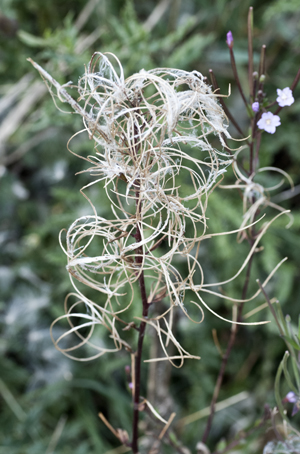Great willow-herb
Leaves and stem
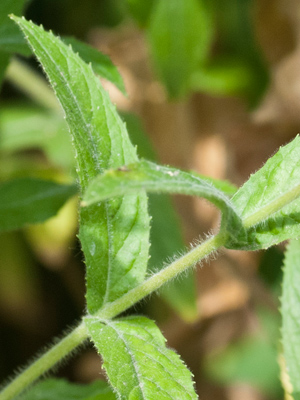
The leaves and stem are noticeably hairy - hence its specific name hirsutum. The leaves are long, spear shaped and noticeably toothed along the leaf margin / edge.
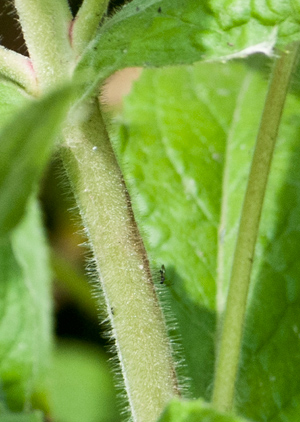
They are arranged in opposite pairs along the stem - though those amongst the flowers may alternate.
Flowers and Fruits
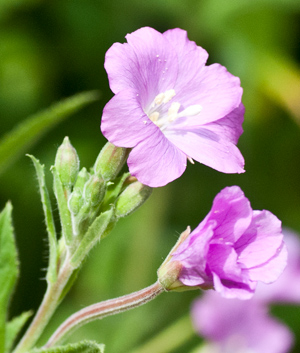
The flowers may be 3/4 inch across, held erect whilst in the bud stage and have 4 purplish pink petals - which have a 'notch in them' and 4 sepals. The stigma is prominent and white, with 4 curved lobes, and is longer than the stamens.
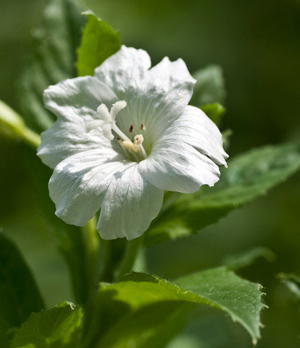
There is a white form of the flower.
Ecology and other notes
The willow-herbs are a 'difficult' group of plants - in that they hybridise readily. Most are hairy perennials - which can spread by short offshoots from the base of the main stem. Most willow herbs have long, toothed, spear shaped leaves that are arranged in opposite pairs along the lower stem, though higher up they may alternate.
The great willow-herb, Epilobium hirsutum (pictured above) is the tallest and largest flowered willow-herb found in the U.K. It is widespread, often abundant in damp places.
All the willow-herbs have long, narrow seed pods that split open when mature to show the silky hairs attached to the tiny seeds; as does Rose Bay Willowherb or Fireweed (Chamerion angustifolium).
